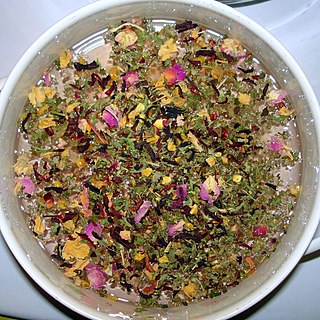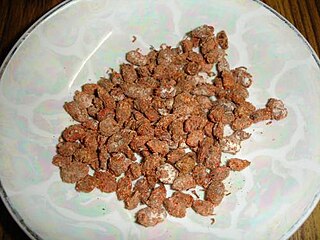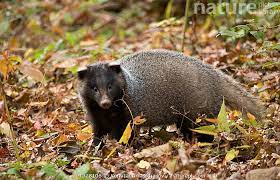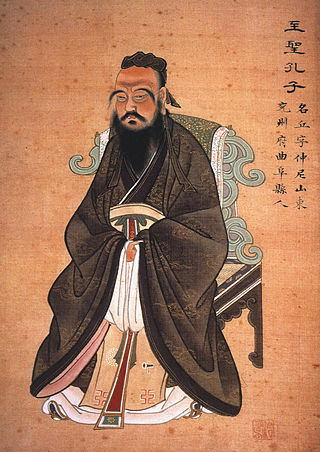Traditional Asian medicine is a collective term for several types of traditional medicine practiced in Asia. [1]
These include the medical traditions of:
| This article is part of a series on |
| Alternative medicine |
|---|
 |
Traditional Asian medicine is a collective term for several types of traditional medicine practiced in Asia. [1]
These include the medical traditions of:

Traditional Chinese medicine (TCM) is an alternative medical practice drawn from traditional medicine in China. A large share of its claims are pseudoscientific, with the majority of treatments having no robust evidence of effectiveness or logical mechanism of action.

Herbal teas, also known as herbal infusions and less commonly called tisanes, are beverages made from the infusion or decoction of herbs, spices, or other plant material in hot water; they do not usually contain any true tea. Often herb tea, or the plain term tea, is used as a reference to all sorts of herbal teas. Many herbs used in teas/tisanes are also used in herbal medicine and in folk medicine. Some herbal blends contain true tea.

Turmeric, ,) is a flowering plant in the ginger family Zingiberaceae. It is a perennial, rhizomatous, herbaceous plant native to the Indian subcontinent and Southeast Asia that requires temperatures between 20 and 30 °C and high annual rainfall to thrive. Plants are gathered each year for their rhizomes, some for propagation in the following season and some for consumption.

Areca is a genus of 51 species of palms in the family Arecaceae, found in humid tropical forests from the islands of the Philippines, Malaysia and India, across Southeast Asia to Melanesia. The generic name Areca is derived from a name used locally on the Malabar Coast of India.

Traditional medicine comprises medical aspects of traditional knowledge that developed over generations within the folk beliefs of various societies, including indigenous peoples, before the era of modern medicine. The World Health Organization (WHO) defines traditional medicine as "the sum total of the knowledge, skills, and practices based on the theories, beliefs, and experiences indigenous to different cultures, whether explicable or not, used in the maintenance of health as well as in the prevention, diagnosis, improvement and treatment of physical and mental illness". Traditional medicine is often contrasted with Evidence based medicine.

Northeast Asia or Northeastern Asia is a geographical subregion of Asia. Its northeastern landmass and islands are bounded by the North Pacific Ocean.

Unani or Yunani medicine is Perso-Arabic traditional medicine as practiced in Muslim culture in South Asia and modern day Central Asia. Unani medicine is pseudoscientific. The Indian Medical Association describes Unani practitioners who claim to practice medicine as quacks.

Ipomoea aquatica, widely known as water spinach, is a semi-aquatic, tropical plant grown as a vegetable for its tender shoots. I. aquatica is generally believed to have been first domesticated in Southeast Asia. It is widely cultivated in Southeast Asia, East Asia, and South Asia. It grows abundantly near waterways and requires little to no care.

Nigella sativa is an annual flowering plant in the family Ranunculaceae, native to eastern Europe and western Asia, but naturalized over a much wider area, including parts of Europe, northern Africa and east to Myanmar. It is used as a spice in many cuisines.
Kyung Hee University is a private research university in South Korea with campuses in Seoul and Suwon. It was founded in 1949. Kyung Hee University is part of the Kyung Hee University System, which offers comprehensive education from kindergarten through graduate school.

Alpinia galanga, a plant in the ginger family, bears a rhizome used largely as an herb in Unani medicine and as a spice in Arab cuisine and Southeast Asian cookery. It is one of four plants known as "galangal". Its common names include greater galangal, lengkuas, and blue ginger.

Jamu is a traditional medicine from Indonesia. It is predominantly a herbal medicine made from natural materials, such as roots, bark, flowers, seeds, leaves and fruits. Materials acquired from animals, such as honey, royal jelly, milk and native chicken eggs are often used as well.
Bachelor of Ayurvedic Medicine and Surgery (B.A.M.S.) is a professional degree focused on Ayurveda offered in India, Nepal, Bangladesh, and Sri Lanka.

Malaysian folk religion refers to the animistic and polytheistic beliefs and practices that are still held by many in the Islamic-majority country of Malaysia. Folk religion in Malaysia is practised either openly or covertly depending on the type of rituals performed.
Blood stasis (BS) is a concept in traditional Chinese medicine (TCM), described as a slowing or pooling of the blood due to a disruption of heart qi. Blood stasis is also described by practitioners of TCM in terms of yin deficiency, qi deficiency and qi stagnation. For non-practitioners of TCM it is sometimes explained in terms of hematological disorders such as hemorrhage, congestion, thrombosis or local ischemia, and in terms of tissue changes. TCM practitioners believe it is an important underlying pathology of many disease processes despite the fact that objective, consistent methods for measuring the presence of blood stasis syndrome are not readily available. Blood stasis is associated with justifications for acupuncture and herbal treatments.

The Hainan Island Ring Expressway, officially the Hainan Region Ring Expressway and designated G98, is a 612.8-kilometre-long orbital expressway (380.8 mi) that encircles the island of Hainan in the People's Republic of China.

The Asian badger, also known as the sand badger, is a species of badger native to Mongolia, China, Kazakhstan, Kyrgyzstan, the Korean Peninsula and Russia.
Georgian folk medicine originated at the crossroads of the East and West and therefore integrates the principles of both medical traditions. On a scale between tribal level folk medicine and highly institutionalized Ayurveda, Chinese and Unani traditional medicines, Georgian traditional medicine ranks closer to the better institutionalized and formalized end of the scale. Some ancient Georgian folk remedies made it to the modern formulations and are commercially distributed in the form of modern drugs, mostly petrolatum-based ointments.

Eastern culture, also known as Eastern civilization and historically as Oriental culture, is an umbrella term for the diverse cultural heritages of social norms, ethical values, traditional customs, belief systems, political systems, artifacts and technologies of the Eastern world.